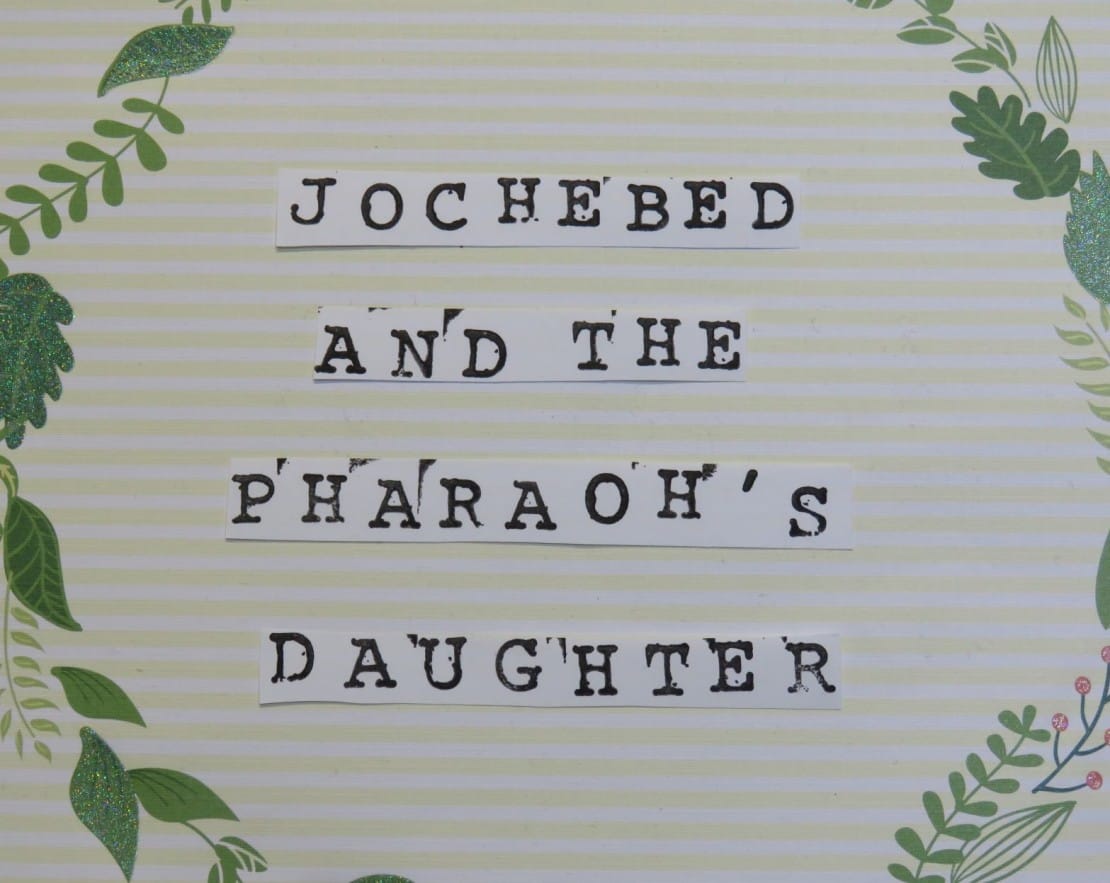Unveiling Jochebed: How to Say Her Name & Why It Matters
Imagine stumbling upon the name “Jochebed” while delving into biblical tales. It’s a name steeped in history, but pronouncing it correctly can feel like deciphering an ancient code. Fear not! This guide will unlock the secrets of “Jochebed,” empowering you to navigate her story with respect and understanding.
Cracking the Code: Pronunciation Variations
In English, “Jochebed” is often pronounced in two main ways:
- American English: joe-kih-bed (emphasis on “joe”) with a clear “j” sound like in “joke.”
- British English: jaw-kih-bed (rounded “o”) with the same distinct “j.”
However, a pronunciation closer to the Hebrew origin, “Yocheved,” is sometimes used:
- Yo: Like “yo” in “yoga.”
- Chev: Imagine a guttural “ch” as in “Bach,” followed by a swift “e” like in “bed.”
- Ved: Essentially “bed” with a touch of emphasis.
Mastering Jochebed: A Three-Part Approach
Try this simple trick: break down “Jochebed” into:
- JOK: As if beginning a joke.
- UH: The sound of mild surprise.
- BED: Where one hopefully rests!
Now blend them: [JOK] + [UH] + [BED]. Practice aloud, exaggerating the sounds initially to solidify them.
Why Precision Matters: Cultural Respect & Clarity
You might wonder, “It’s just a name, right?” Not quite! Here’s why:
- Cultural Sensitivity: “Jochebed” is deeply rooted in Hebrew, a language with millennia of history. Proper pronunciation shows respect for that heritage.
- Biblical Significance: Jochebed was no ordinary woman. As the mother of Moses, Miriam, and Aaron, she played a pivotal role in the Exodus. Honoring her name honors her legacy.
- Clear Communication: Mispronounced names breed confusion. Imagine discussing a historical figure, but no one grasps who you mean due to inconsistent pronunciation!
Pronunciation Power-Ups: Tools for Mastery
- YouTube: Search “Jochebed pronunciation.” Visual and auditory demonstrations can be incredibly helpful.
- Record Yourself: Use your phone or computer. Listening back helps pinpoint areas needing refinement.
How do you pronounce Jochebed in Hebrew?
Delving into Jochebed’s life, it’s essential to acknowledge the Hebrew pronunciation of her name, “Yo-kheved” (yo-KHEH-vehd). This not only demonstrates respect for its origins but also enhances our connection to her story.
Hebrew Pronunciation: Honoring Authenticity
In Hebrew, Jochebed is pronounced “yo-KHEH-vehd.” The emphasis falls on the second syllable, “KHEH,” giving it a distinctive forcefulness.
Unveiling the Meaning: “Yahweh is Glory”
“Yo-kheved” translates to “Yahweh is glory,” with “Yahweh” being another name for God in the Bible. Jochebed’s name reflects a deep reverence for the divine.
Connecting Deeper: The Power of Language
Correctly pronouncing “Jochebed” in Hebrew transcends mere linguistics. It’s a bridge to the past, allowing us to connect with the culture and beliefs of her time.
A Closer Look: Syllable Breakdown
- “Yo”: As simple as greeting a friend—”yo!”
- “khe”: Think of the throaty “ch” in “Bach” or “loch.”
- “ved”: Similar to “ved” in “vivid.”
Jochebed’s Enduring Strength
Remember, Jochebed’s story is one of immense bravery. Risking her own life, she defied Pharaoh’s decree to save her infant son, Moses. Honoring her name through accurate pronunciation adds depth and power to her tale.
Why is Jochebed Important in the Bible?
Jochebed’s significance transcends her role as Moses’s mother. It’s her unshakeable faith and audacious bravery in the face of unthinkable adversity that continues to inspire today.
Imagine the terror Jochebed must have felt when Pharaoh, the absolute ruler of Egypt, ordered the death of all Hebrew baby boys. Yet, she chose to defy this cruel edict. For three long months, she concealed baby Moses, her own child, risking everything for his survival.
The decision to finally let go was undoubtedly heart-wrenching. Jochebed wove a basket, a vessel of hope, and placed Moses in it. Entrusting his fate to the Nile River was an act of both desperation and immense faith. It was a mother’s ultimate sacrifice, believing that God would watch over her son.
And so He did. The Pharaoh’s daughter discovering Moses was no mere coincidence; it was a testament to Jochebed’s belief in divine providence. This intervention allowed Moses to live and eventually fulfill his destiny – leading the Israelites to freedom.
Jochebed’s courage undoubtedly left an indelible mark on her other children, Aaron and Miriam. Growing up with a mother who challenged injustice instilled in them a profound sense of justice and faith. Aaron became the first High Priest of Israel, shaping their religious practices, while Miriam, a prophetess, played a pivotal role in the Exodus.
Jochebed’s legacy is not confined to the pages of history. It’s a timeless reminder that faith and courage can overcome monumental obstacles. Her actions weren’t just about saving her son; they were about preserving hope during a time of unimaginable darkness. Jochebed’s story teaches us that even when confronting our own personal “Pharaohs,” holding onto faith and acting with courage can have an impact far exceeding our wildest dreams.
What Nationality Was Jochebed?
While residing in Egypt during a period of Israelite enslavement, Jochebed’s nationality wasn’t defined by her geographical location. She and her husband, Amram, were both Israelites, a fact crucial to understanding their children’s heritage–Miriam, Aaron, and Moses.
Jochebed’s lineage is the very foundation of the Moses narrative. Had she been Egyptian, the course of history, as we know it, would have been radically altered. Her background sets the stage for one of the most pivotal stories in human history.
But it’s not just about where she came from; it’s about the unwavering strength of her faith. Imagine the strength it took to defy Pharaoh’s deadly decree. Not only did she hide Moses for three months, but she then made the agonizing decision to entrust him to the Nile River, believing God would guide his path.
And guide He did. The discovery of Moses by the Pharaoh’s daughter is a testament to Jochebed’s trust in a power far greater than her own. It’s a reminder that God can use anyone, regardless of their circumstances, to accomplish extraordinary feats. Jochebed’s legacy resonates through millennia, a testament to the boundless power of a mother’s love and faith, even in the most dire of circumstances.
For those captivated by the natural world, the Joyce Kilmer trees offer a glimpse into an awe-inspiring old-growth forest. And if you ever encounter a word that leaves you tongue-tied, our guide on Laodicea pronunciation will equip you with the knowledge to navigate even the trickiest terms.
- Unlock Black Pepper’s Secrets: A Complete Guide - April 26, 2025
- Discover Long Black Pepper: Flavor & Health Benefits - April 25, 2025
- Shocking Twists: The Grownup Review: Unreliable Narration - April 25, 2025

















2 thoughts on “Jochebed Pronunciation: A Guide to Mastering the Biblical Name”
Comments are closed.